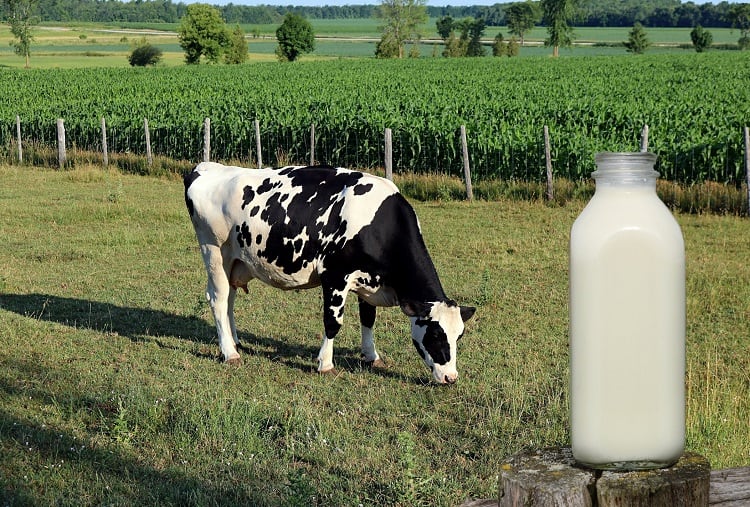France-based Ingredia, under cooperative parent company Properité Fermière, has announced a collaboration with Parisian start-up Connecting Food.
Connecting Food’s blockchain-based platform will allow the ingredients firm to trace and digitally audit all food products in real time, across the entire supply chain.
“Every production step, from the animal feed to producer to the final product packing plant, is tracked in real time. Traceability information and proof of audit, registered on blockchain, are made available to the end consumer,” explained Ingredia.
By tapping blockchain – an open and secure digital ledger that encrypts a permanent record of transactions – Ingredia ensures its data remains tamperproof.
“[Data] flows are automated and without human intervention, which is a major improvement over current traceability systems,” the company continued.
In particular, the technology will verify that its Ingredia’s Via Lacta range respects product specifications.
Via Lacta is Ingredia’s corporate social responsibility programme, launched in 2017 in collaboration with the World Wildlife Fund (WWF). The initiative is founded on environmentally-friendly husbandry practices.
Consumer trust
“Our partnership with Connecting Food makes sense as we believe transparency is the best way to prove to the consumers our corporate social responsibility approach,” said Ingredia’s marketing director Julie Lemahieu.
“We are addressing the needs of the consumers who want to be able to trace their products back to the farms, and to verify by themselves our commitments and progress plan for each of them.”
Indeed, according to French agency Nutrimarketing, which monitors innovation, the development of new products, and communication in nutrition, 70% of the nation’s consumers do not trust food manufacturers.
Italy is also distrusting of manufacturers in the food industry, with just 27% of consumers aged 16 years and over saying they trust food makers. In the UK and Spain, however, 53% and 60% trust food manufacturers respectively.
For Ingredia, this strategic partnership will help cement consumer trust in the company. “The revolutionary and tamper-proof blockchain system developed by Connecting Food is the final step in order for the consumer to be able to fully trust our brand,” said Lemahieu.
Blockchain in France
Blockchain has attracted significant attention from the food industry of late, as manufacturers look to build traceability across the supply chain.
France, in particular, has seen a number of local and multinational firms adopt the digital ledger technology.
Earlier this year, supermarket retailer Carrefour tapped blockchain to open up its Carrefour Quality Line (CQL) milk supply chain to consumers.
By scanning a QR on the bottle, shoppers can learn about where the animal that produced the milk was reared, and what it was fed depending on the season.
The following month, Carrefour broadened its use of blockchain in partnership with food giant Nestlé. Shoppers inside Carrefour stores can scan a QR code on Nestlé’s Mousline mashed potato packets, offering insight into its production date, quality control parameters, storage times and location of warehouses.
Consumers can also learn which farmers supplied the potatoes for the product and how Mousline is made.





